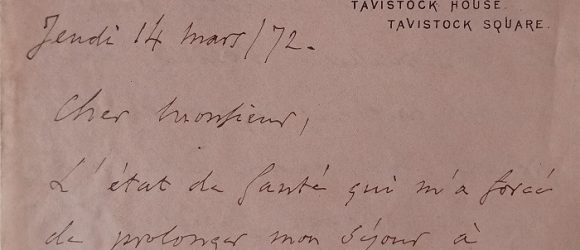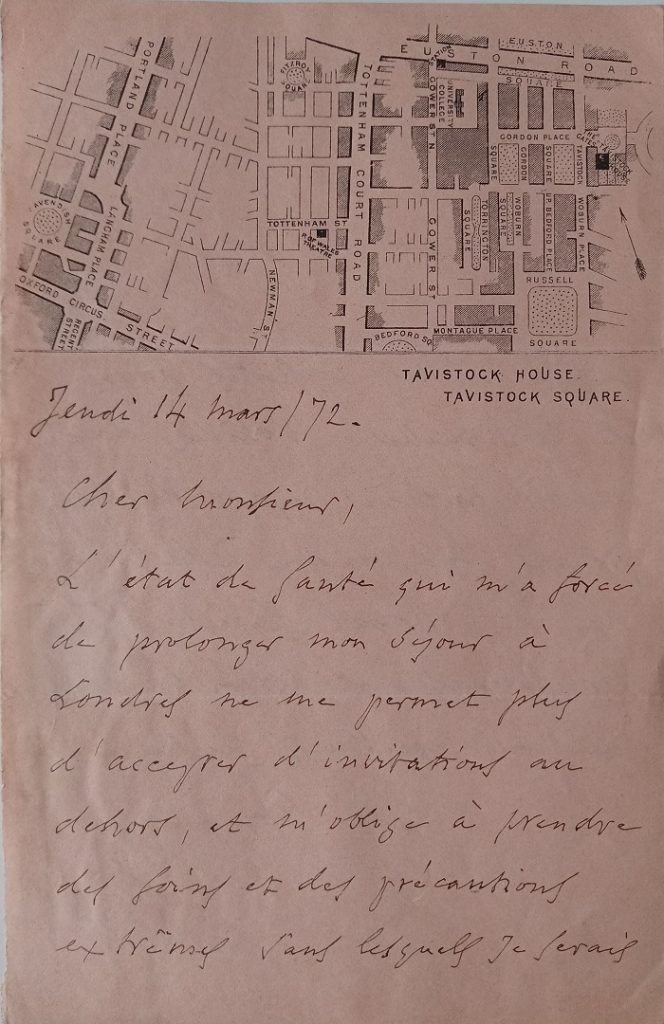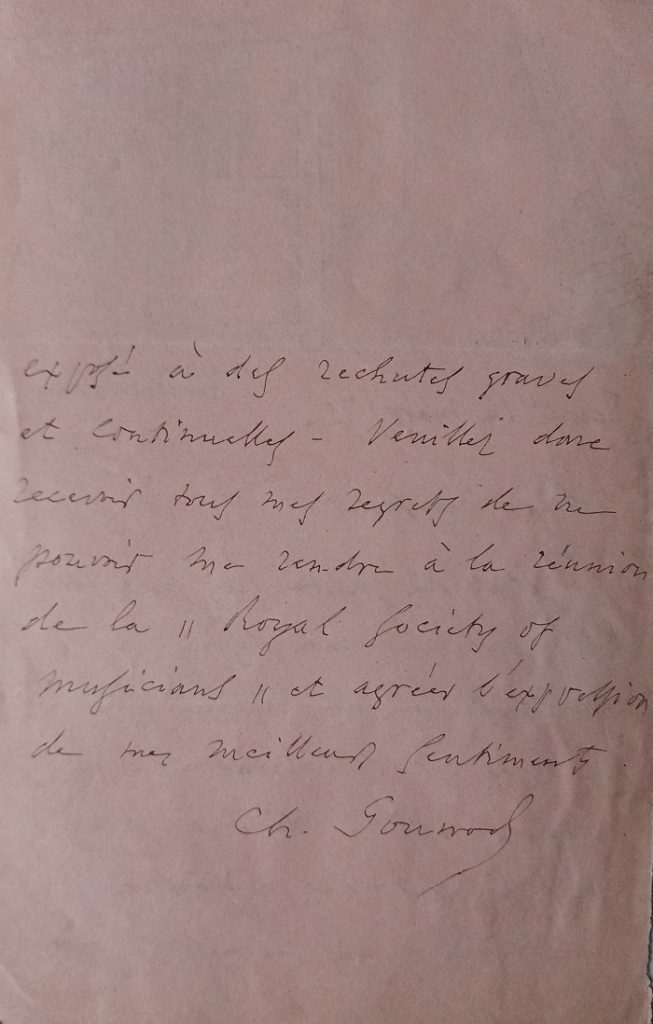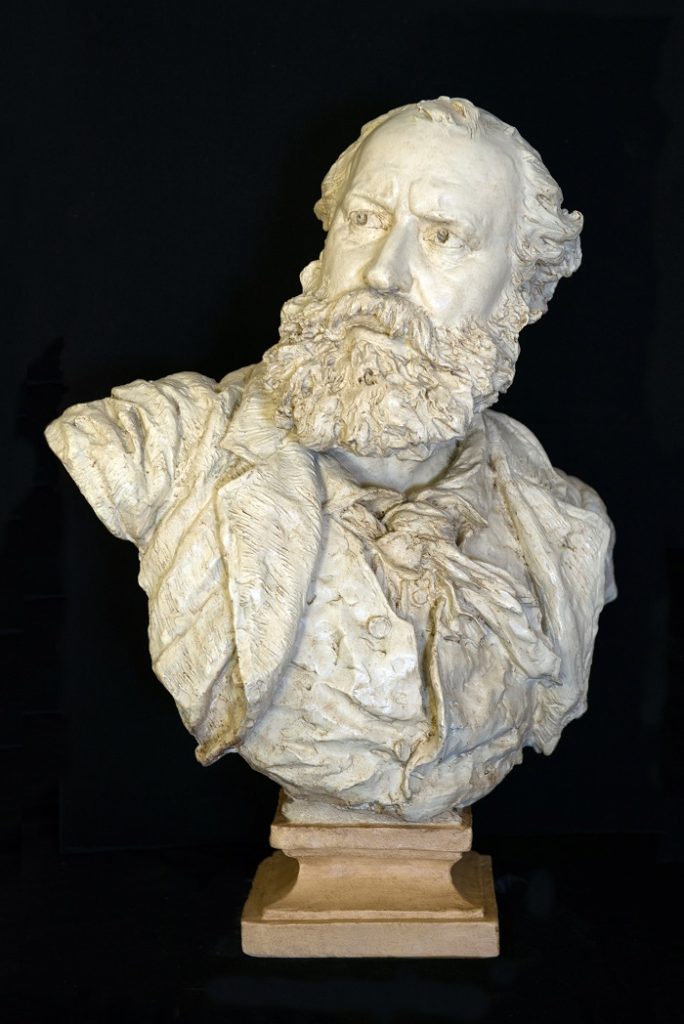Archive Item of the Month: April 2022

Charles Gounod (1818-1893)


Transcription:
Jeudi 14 Mars / 72
Cher Monsieur
L’ état de santé qui m’a forcé de prolonger mon séjour à Londres ne me permet plus d’accepter d’invitations au dehors, et m’oblige à prendre des soins et des précautions extrèmes sans lesquell je serais expressé à des rechutes graves et continuelles. Veuilles donc recevoir tous mes regrets de ne pouvois ma render à la reunion de la “Royal Society of Musicians” et agrees d’expression de mes meilleurs sentiments
Ch. Gounod
The letter replies to what was most likely an invitation to the Society’s annual dinner which, in this year, was held on 5 April in Willis’s Rooms with the H.R.H. the Duke of Edinburgh [Prince Alfred (1844-1900)] as President for the evening. Willis’s Rooms, previously Almack’s Assembly Rooms founded in 1765 and situated opposite Christie’s auction house, was an exclusive venue in London’s St James’s for concerts, various series of fashionable concerts such as the Bach-Abel Concerts and Harrison & Knyvett’s Vocal Concerts, dancing, and, in the nineteenth century, lectures and suchlike. The buildings included dining facilities and the RSM used these for their annual dinner festivals on several occasions during the 1870s.
Gounod replies that his health is such that he must take care of himself and also precautions against going out, having had to stay in London and not be able to travel to France. Gounod had arrived in London at the end of 1870 as a result of fleeing the Franco-Prussian war, with his own home being destroyed during that time. His composition of the motet Gallia, first performed in the Albert Hall on 1 May 1871, was a result of his anguish at the political events of the time, the text comprising the lamentations of the prophet Jeremiah about the destruction of Jerusalem with the addition of Gounod’s prayer and patriotic entreaty.
The charming notepaper includes a local map of Bloomsbury with Tavistock Street and surrounds, the residence here being that of the Weldon family and, in particular, the singer Georgina Weldon with whom Gounod had professional and personal connections.





